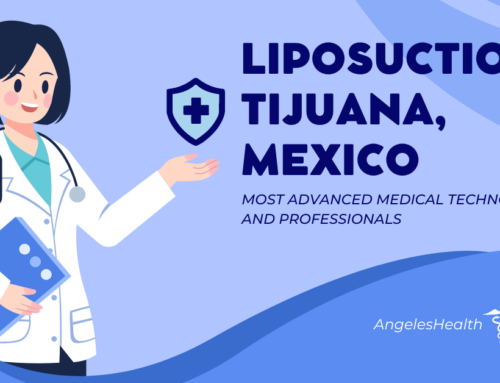If you have struggled with being overweight for a significant amount of time, you almost certainly have experienced a less than admirable aspect of Western culture; fat shaming.
Fat shaming in Western society centers around the idea that those who are overweight are in that situation because they lack willpower, keep bad habits, and are otherwise at fault and therefore undeserving of help or compassion for their own failures.
Granted, these judgments aren’t necessarily held open for all to see, but close observation of the comments, looks, advertisements, and TV shows common today clearly display this common belief directed towards those who are overweight.
“No Pain, No Gain” – Do You Really Have to Suffer to Lose Weight?
Another aspect of fat shaming, which has been deemed by some as “Bariatric Calvinism“, is the belief that overweight people must somehow redeem themselves. Our culture carries with it a bias that those who want to get healthy must suffer and repent for their lack of willpower and slothfulness which are sometimes considered the only factors involved in becoming severely overweight.
When a fat person loses weight through extreme dietary restrictions and heavy exercise, he or she is thought to be doing the hard work needed to prove their worthiness of being thin. As the saying goes, “No pain, no gain”.
The Rollercoaster Ride of Weight Loss and Weight Gain
Despite the presence of fat shaming in our culture, if we stop to think about it, we know there are more factors to obesity than bad habits and willpower.
How many times have we heard of a person who has lost hundreds of pounds through calorie restriction and intense exercise only to gain it all back within a few years?
If the concept of Bariatric Calvinism actually had any degree of truth, wouldn’t the gods of skinniness honor someone who has shown so much willpower and dedication to losing weight?
Fat Shaming – A Distraction From Reality?
Perhaps Westerners are simply looking for a scapegoat to avoid their own issues, and labeling fat people as gluttonous and lazy across the board seems to be entertaining enough for many thinner individuals to remain distracted from the multitude of true causes of obesity beyond the control of willpower.
We see TV shows such as “The Biggest Loser” which let us watch fat people go through the horrors and strains of weight loss, and think about how they must be building good character through suffering and deprivation.
By and large, our society views the overweight and obese as undeserving of care until they “repent” for whatever sins they committed which caused them to be fat by suffering through pain. Why is this so?
Fat Shaming in Healthcare – The Complex Causes of Obesity
Being thin in many ways means being privileged and respected, even by the medical community. Why is it that even doctors seem to have the perception that fat people have some sort of character defect?
We live in a sad society where media of all forms is inundated with advertisements for food products with very low nutritional value, often containing a number of chemical additives, some of which are known to increase appetite.
There are also a multitude of environmental factors including socio-economic status, food deserts, access to healthcare, food insecurity, and food quality standards that contribute to obesity which are beyond an individual’s control. Not to mention biological factors such as genetics, metabolic rates, diseases, and even psychological elements that contribute to an individual’s weight.
So who is really to blame for the obesity epidemic we are currently seeing? Who is going to provide real solutions?
Now imagine how it would feel in a world that is more just, where medical care has the intention to truly meet the needs of all people to allow them to live full, happy lives. Instead of your doctor giving you the same song and dance about how important it is to lose weight but not offering any real solutions, what would it be like with all judgment set aside, with doctors and patients working together in search of a greater truth?
Bariatric Surgery Offers Hope to the Obese
For those with a sincere desire to seek a weight loss solution beyond the traditional “diet and exercise” roller coaster ride, bariatric surgery may be worthy option to consider. While still not a common method of treating severe obesity in the United States, other countries have embraced this method, recognizing the long term improvements it can make in the lives of so many people when nothing else has been effective.
Bariatric surgery helps people achieve long term weight loss, as well as the benefits of reducing the risk of diseases related to excessive weight.
While bariatric surgery reduces your ability to ingest food and may also restrict your body’s ability to absorb a portion of your ingested food, a feeling of fullness is typically reported after eating small amounts of food once the surgery is complete.
Although the best results are seen in patients who combine bariatric surgery with dietary and lifestyle changes, research confirms that, even when lifestyle changes are lacking, life expectancy of massively obese people increases after bariatric surgery is performed.
Stop Suffering and Start Living!
Being extremely obese places you at a much higher risk of many diseases, including type two diabetes, heart disease, joint problems including arthritic conditions, and much more.
For those of you who are obese and have already tried lifestyle changes repeatedly with no success, you didn’t fail at diet and exercise, diet and exercise failed you. Consider changing your approach by seeking medical assistance. Bariatric surgery can be a life-saving option when nothing else seems to work.
The culture of fat shaming and Bariatric Calvinism demand suffering in order for an overweight person to become fit and healthy. However, we know that there are more factors behind obesity than willpower alone. Society is doing itself no favors by shaming overweight individuals. Instead, we should be offering empathy and removing the stigma from bariatric surgery as a life-saving option.






